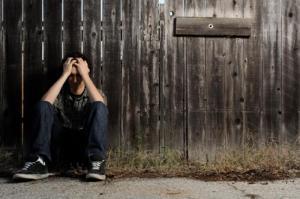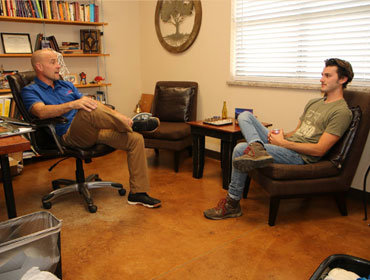Help For Teenage Rebellion
How do parents distinguish between normal and abnormal teenage rebellion in an adolescent?
During the teenage years, the area of the brain called the prefrontal cortex is developing. This is the part of your brain that is behind your forehead. It’s your thinking cap and judgment center… which means kids can now develop their own ideas.
What Is Teenage Rebellion?
Teenage rebellion is an act of the highest assertion of independence and little adherence to parental advice during the teen years of a child’s life. It is called a “rebellion” because it leads to an intense confrontation between the teen and their parents. Teenage rebellion may seem spontaneous and illogical for parents, but the behavior has several underlying reasons.
Two common types of rebellion are against socially fitting in (rebellion of non-conformity) and against adult authority (rebellion of non-compliance). In both types, rebellion attracts adult attention by offending it.
The young person proudly asserts individuality from what parents like or independence from what parents want; in each case, it provokes their disapproval. Therefore, rebellion, which is simply behavior that deliberately opposes the ruling norms or powers that be, has been given a good name by adolescents and a bad one by adults.
 Parents usually dislike adolescent rebellion because it creates more resistance to their job of providing structure, guidance, and supervision and because rebellion can lead to serious harm.
Parents usually dislike adolescent rebellion because it creates more resistance to their job of providing structure, guidance, and supervision and because rebellion can lead to serious harm.
- It can cause young people to rebel against their own self-interests, rejecting childhood interests, activities, and relationships that often support self-esteem.
- It can cause them to engage in self-defeating and self-destructive behavior, like refusing to do schoolwork or even physically hurting themselves.
- It can cause them to experiment with high-risk excitement, like accepting dares that, as a child, they would have refused.
- It can cause them to reject safe rules and restraints, like letting impulse overrule judgment to dangerous effect.
- It can cause them to injure valued relationships, pushing against those they care about and pushing them away.
Adolescent rebellion is not simply a matter of parental aggravation but also a matter of concern.
Although the young person thinks rebellion is an act of independence, it never is. It is an act of dependency. Rebellion causes the young person to depend on their self-definition and personal conduct to do the opposite of what other people want.
That’s why the antidote for rebellion is the true independence offered by creating and accepting a challenge — the young person deciding to do something hard for themselves to grow themselves. The teenager who finds a lot of challenges to engage with and has parents who support those challenges doesn’t need a lot of rebellion to transform or redefine him or herself in adolescence.
 How Do You Know If Your Teen’s Rebellion Has Gone Out of Hand?
How Do You Know If Your Teen’s Rebellion Has Gone Out of Hand?
Here are some signs that the rebellion has overshot its limits:
- Prolonged display of annoyance and aggression towards parents or other family members
- Change in attitude
- Less interaction with family members
- Always giving short and rude answers
- Open defiance, even when outdoors or deliberately doing things asked not to be done
- Having no qualms about indulging in risky behavior activities like tobacco usage and alcohol consumption
Normal Teen Behaviors
During normal adolescence, you might observe any of the following about your child’s behavior:
- Is moody and secretive
- Spends much of his time alone in his room
- Gets frustrated easily and stomps out of the room
- Is short-tempered and impatient, especially with parents
- Doesn’t want to spend time with the family
- Is late for curfew
- Says things like, “Only my friends understand me! I hate it here; I wish I could leave.”
- Is discontented and restless
As unpleasant as it is at times, this is all part of how teens and pre-teens individuate from their parents—it’s part of the transition from childhood to adulthood.
 Out-of-Control Teen Behaviors
Out-of-Control Teen Behaviors
But some behaviors are not normal. Rather, they’re warning signs. The following behaviors fit into this category:
- Stealing
- Being physically abusive to others or destructive in the house
- Being verbally abusive, intimidating, or threatening
- Abusing a younger sibling
- Coming home drunk or high
- Staying out all night
- Getting arrested
There’s something wrong with these behaviors. Parents who tell themselves, “It’s just a phase” or “It’s what teenagers do,” set themselves up for a rude awakening later.
If any of this happens in your house, remember that the earlier you intervene with your child, the better. The sooner you tell your child what he’s doing is unacceptable and give him the tools to behave differently, the better.
Boys Ranches
Transforming Troubled Boys into Young Men of Character
At the very first Teen Challenge Adventure therapeutic boarding school, we are still finding innovative new ways to help troubled boys, even after 40 years of service. We are a Christian therapeutic boarding school and ranch dedicated to aiding troubled boys get a new start in life.
Our approach to value education is very structured and disciplined. Teen Challenge utilizes a faith-based, integrated intervention model with Biblically based methods that incorporate concepts and techniques from various psychological approaches, all presented in a loving Christian environment. We see academic success as a key to your son’s long-term life success
Our Teen Challenge program in Arkansas offers a nurturing environment where teenage boys 14-17 can find unconditional support and guidance. If your child is suffering from behavior issues or depression or is making choices that cause harm to himself or others, we are here to help. Since 1973, we’ve been here to help boys suffering from a variety of personal issues, especially including self-destructive behavior and thoughtless attitudes, failing in school or school expulsion, addictions and drug use, reactive attachment disorder, attention-deficit/hyperactivity disorder (ADD/ADHD), PTSD, and depression.
To Find Out More About Our
Therapeutic Boarding School,
Please Complete Our Inquiry Form.
We look forward to talking to you about how we can help
you, your son, and your whole family.
Our heart’s desire goes beyond just impacting your son
but the restoration of the entire family.
Get Help For Your Son Now (888) 289-6818
Sources: 1) https://www.webmd.com/parenting/features/teenagers-why-do-they-rebel#1 2) https://www.momjunction.com/articles/teen-rebellion_00389300/ 3) https://www.psychologytoday.com/us/blog/surviving-your-childs-adolescence/200912/rebel-cause-rebellion-in-adolescence 4) https://www.empoweringparents.com/article/is-it-an-adolescent-phase-or-out-of-control-behavior/




